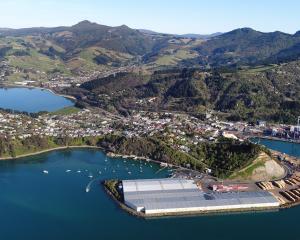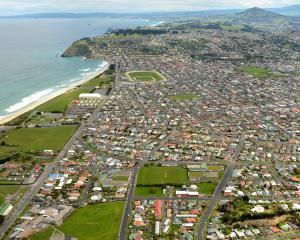The Dunedin City Council could tighten hazardous substances rules despite empathising with the objections of Mercy Hospital, but the tough new stance may also present "fishhooks" for other businesses in residential areas.
The concern was raised as members of a council hearings panel completed the third and final day of public submissions on Plan Change 13: Hazardous Substances yesterday.
The plan change sought to bring the council's district plan rules in line with the Hazardous Substances and New Organisms (HSNO) Act 1996, and changes included new restrictions in residential areas of the city.
Mercy Hospital had objected to changes under which it would be forced to abide by lower thresholds for the quantity of solvents, diesel, oxygen and acetylene and other hazardous materials able to be stored on site without a resource consent.
Senior resource management consultant Joanne Dowd, representing Mercy Hospital, this week argued the plan change "should be withdrawn so far as it applies to the Mercy Hospital site", or higher thresholds permitted for the site.
If not, the need to obtain resource consents would mean the hospital faced "costly inefficiencies", she said.
However, council policy planner Kirstyn Lindsay, summing up following the completion of submissions yesterday, stuck to her recommendations despite expressing empathy with the hospital's situation.
She would be "exceedingly uncomfortable" changing the rules for the entire residential zone to accommodate the hospital's needs, and expert advice to the council was also against allowing higher thresholds for the site alone.
The council should ease restrictions on oxygen and acetylene storage, but otherwise her recommendations "must stand", she said.
However, committee member Cr Andrew Noone questioned whether there were other operations inside residential zones that could be caught out by the changes.
Committee adviser Rex Alexander suggested the "potential fish hooks" could have an impact on Wakari Hospital, which had a "fairly large" lpg storage tank properly certified under the HSNO Act.
Schools with lpg facilities could also be affected, despite also being properly certified under the HSNO Act, he suggested.
The changes were yet to be confirmed, but the council hearings committee began deliberations in private following yesterday morning's public session.
A written decision was expected early next month, and submitters would have a month to decide whether to appeal to the Environment Court.












